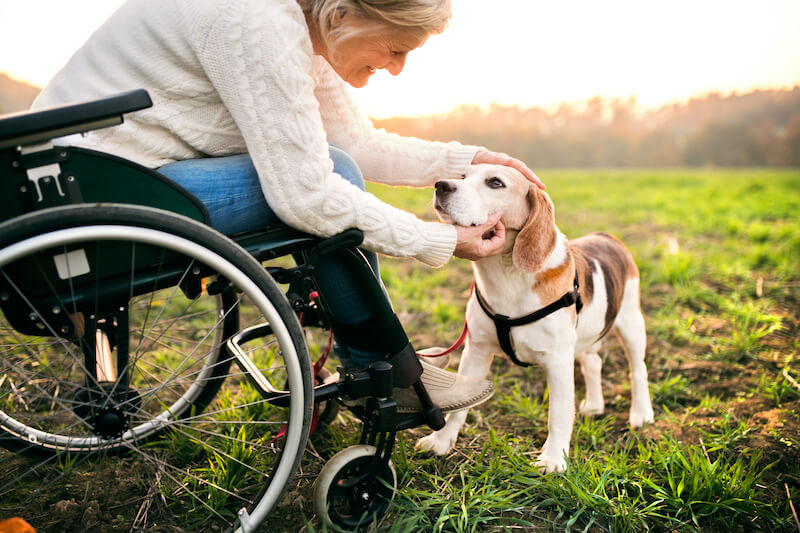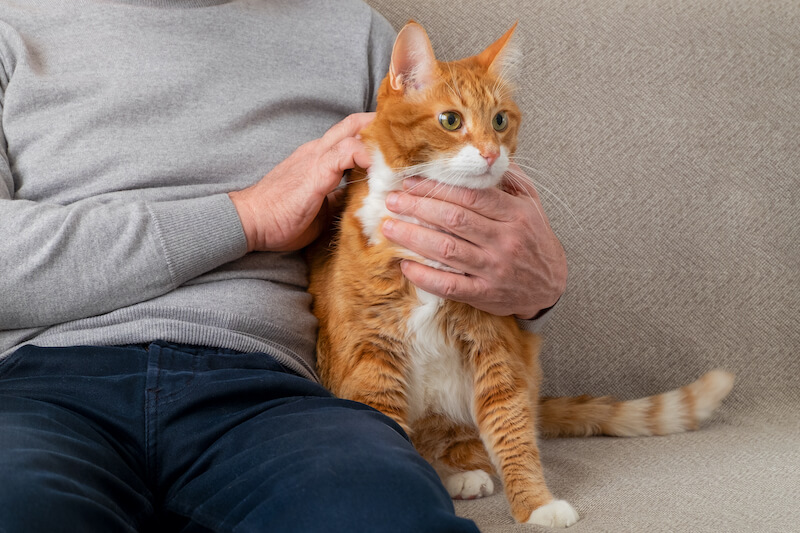As we enter the golden years of our lives, it becomes increasingly important to prioritize our physical, mental, and emotional well-being. While there are various activities and therapies that can enhance the quality of life for seniors in assisted living facilities, one exceptional companion stands out – pets. The presence of furry friends can bring immeasurable joy and numerous benefits to seniors, fostering a sense of purpose, companionship, and overall happiness. According to the Centers for Disease Control and Prevention (CDC), pets “increase opportunities for exercise and outdoor activities, [contribute to] better cognitive function in older adults, and [provide] more opportunities to socialize.” Having a pet is also linked to health benefits such as decreased blood pressure, cholesterol levels, and triglyceride levels. Pet ownership is even associated with reduced feelings of loneliness, anxiety, and PTSD. In this blog, we will explore the remarkable advantages of having pets in assisted living facilities for seniors.

Companionship and Reduced Loneliness:
Pets offer unwavering companionship and unconditional love. For seniors who may have lost a spouse, live far from their families, or have limited social interactions, the presence of a pet can fill the void and combat loneliness. Simply stroking a cat or walking a dog can provide seniors with a sense of purpose, as they are responsible for another living being’s well-being. The presence of a pet can alleviate feelings of isolation and create a strong bond between the senior and their furry friend.

Increased Physical Activity:
Pets, especially dogs, require regular exercise and playtime. This need for physical activity can have a positive impact on seniors’ overall health and well-being. Taking a dog for a walk or engaging in playtime can encourage seniors to be more active, boosting cardiovascular health, improving mobility, and even aiding weight management. The added benefit of exercising with a pet is that it doesn’t feel like a chore but rather a fun and enjoyable activity, making it easier to maintain a consistent routine.

Mental Stimulation and Cognitive Benefits:
Pets can stimulate seniors’ minds and help maintain cognitive function. Caring for a pet involves remembering feeding schedules, grooming routines, and even training commands, all of which contribute to mental stimulation. Engaging with a pet through play and training exercises can improve memory, problem-solving skills, and overall cognitive abilities. Furthermore, research suggests that the presence of pets can potentially reduce the risk of age-related cognitive decline, such as dementia, by providing mental challenges and fostering an environment of continuous learning and adaptation.
Pets can also provide a source of emotional support during cognitive difficulties. For seniors experiencing memory loss or cognitive impairments, the unconditional love and non-judgmental nature of a pet can be incredibly comforting. Seniors can share stories, reminisce, and develop a deep emotional connection with their pets, creating moments of joy and familiarity in their lives. By engaging with their pets, seniors can maintain a sense of purpose and retain a sense of identity, boosting their overall well-being and cognitive resilience.

Stress Reduction and Emotional Well-being:
The presence of pets has been proven to reduce stress levels and promote emotional well-being. Petting a dog or a cat releases endorphins, which are natural mood enhancers. These interactions can help lower blood pressure, decrease anxiety levels, and alleviate symptoms of depression. Seniors often find solace and comfort in their pets, as they provide a source of unwavering support and a listening ear. The emotional bond developed with a pet can lead to increased happiness, a greater sense of security, and a feeling of being loved and needed.

Socialization and Improved Mental Health:
Pets can act as social catalysts, fostering connections between seniors and other residents or staff members in assisted living facilities. Walking a dog or engaging in pet-related activities often leads to encounters with fellow pet owners, creating opportunities for conversations and building friendships. Additionally, pets can serve as conversation starters and provide common ground for shared experiences and stories. The increased social interaction and sense of belonging can have a positive impact on seniors’ mental health, helping to prevent feelings of isolation and improving overall happiness.
Incorporating pets into assisted living facilities for seniors can significantly enhance their quality of life. The companionship, physical activity, mental stimulation, emotional well-being, and socialization opportunities that pets provide contribute to a holistic and fulfilling experience for seniors. As we recognize the profound benefits of pets in assisting seniors, it is essential for assisted living facilities to consider pet-friendly policies and programs that enable seniors to experience the joy and therapeutic advantages that pets bring to their lives.




